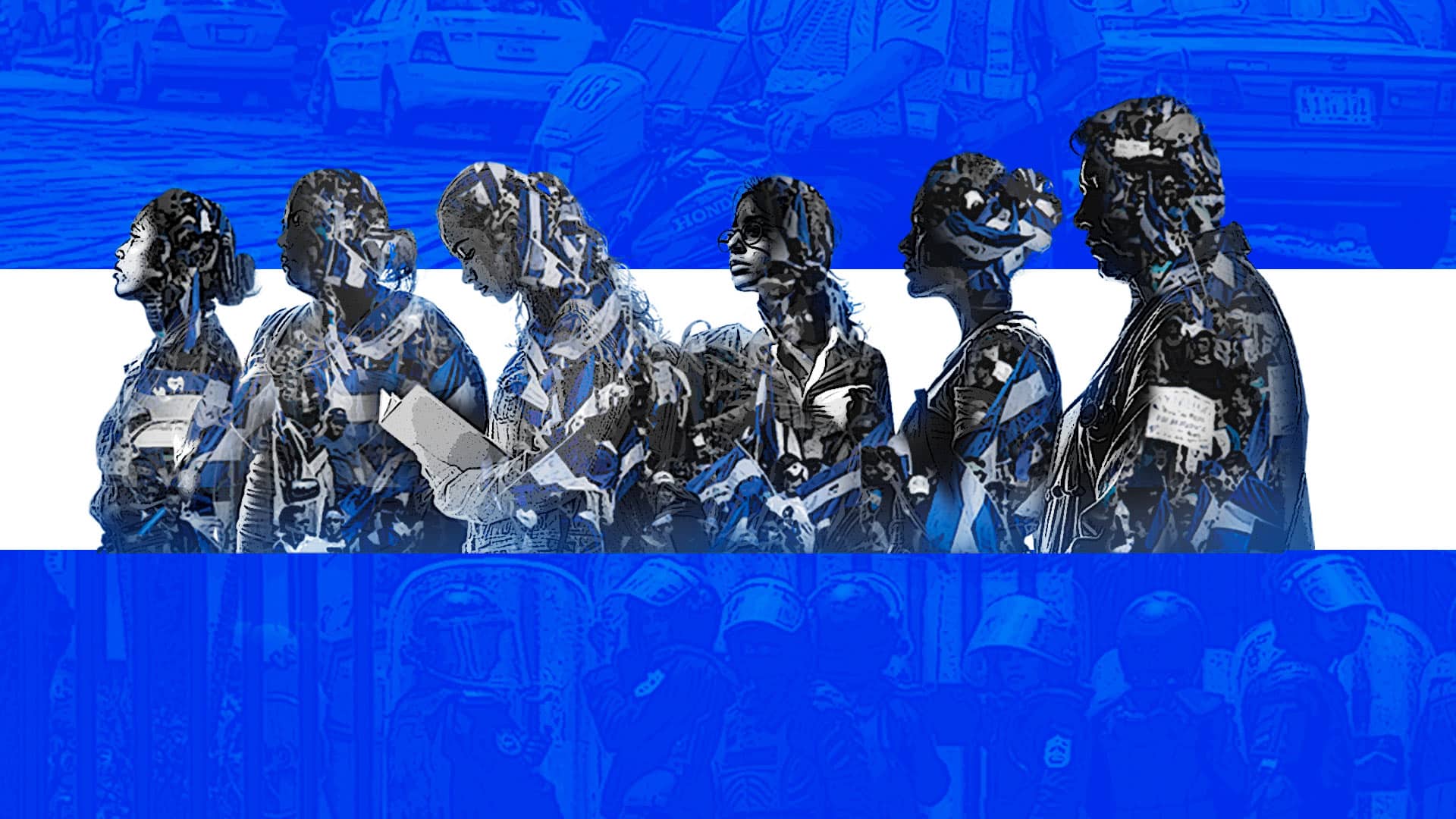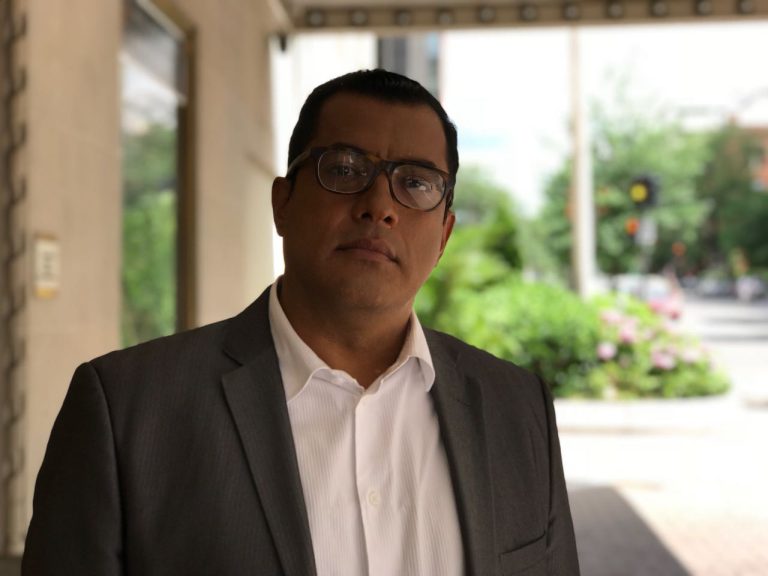12 de junio 2019

Six Years With April in Tow: Life Under Nicaragua's New 'Normal'

PUBLICIDAD 1M
PUBLICIDAD 4D
PUBLICIDAD 5D
Testimony by Felix Maradiaga Blandon at the House Committee on Foreign Affairs.

Félix Maradiaga.
Testimony by Felix Maradiaga Blandon, Executive Director of the Institute for Strategic Studies and Public Policies (IEEPP) and member of the Political Council of “Unidad Nacional Azul y Blanco” (UNAB, Blue and White National Unity), at the House Committee on Foreign Affairs (Subcommittee on the Western Hemisphere).
Washington DC, June 11, 2019.
Good morning, Mr. Chairman and members of this sub-committee. It is an honor to be here today.
Since his return to power in 2006, Daniel Ortega has taken over Nicaragua’s institutions to remain in power, causing widespread corruption, human rights abuses and a collapsing economy. Ortega and his inner circle constitute a clear and present danger not only to the people of Nicaragua, but also to the entire hemisphere. In the face of this, Nicaraguanshave joined together to restore liberty, justice and democracy.
In April 2018, Nicaraguans from all walks of life joined pro-democracy protests, demanding respect for human rights, the resignation of Ortega and early, free andinternationally monitored elections. The response was a brutal government crackdown ofprotesters that caused the deaths of over 300 people.
Talks between the regime and the opposition have repeatedly failed. In May of this year, negotiations were suspended as a result of the assassination of political prisoner Eddy Montes, a US Navy veteran with dual citizenship who was retired in Nicaragua. His killinginside the notorious "La Modelo" prison outraged Nicaraguans because he was shot by prison guards with an AK-47, while unarmed.
Ortega has violated preliminary agreements. Instead, his regime continues to perpetrate human rights violations, including extrajudicial killings, torture, sexual abuse of prisoners,arbitrary detentions and other crimes against humanity. These violations make it increasingly difficult for the opposition to resume negotiations.
The regime continues to persecute citizens who actively participated in the protests, causing an unprecedented exodus of refugees not seen since the Nicaraguan civil war of the 1980s. Over 100 thousand people have fled the country since the conflict began. The vast majority remains in Costa Rica under dire conditions. Although the response of the government of Costa Rica has been admirable, the international community has ignored that there is a humanitarian crisis of Nicaraguan refugees in Costa Rica.
We have also seen an increase of Nicaraguans escaping from political persecution and seeking asylum in the United States. Their need for asylum is legitimate, as they would face certain death or incarceration if their return.
At least 2000 people have been imprisoned for participating in anti-Sandinista protests. While most of them have been released on house arrest due to national and internationalpressure, many remain in arbitrary detention. The regime continues to use human beings as bargaining chips. An additional 200 activists, myself included, have arrest warrants under bogus charges.
Ortega controls the National Police who reports directly to him and his wife. In the case of the military, once Ortega rose to power, he sent Generals that were considered professional into early retirement and promoted those that were loyal to him.
Despite immense personal risks, the people of Nicaragua continue to struggle for democratic change. All forms of peaceful protests have been prohibited. Sandinista loyalists constantly intimidate members of the opposition. All major cities are militarized.Nicaragua is now a police state.
We, the Nicaraguan people are fighting for our freedom. We are not asking the international community to solve our problems, but since our struggle is non-violent, we need robust international support in the form of targeted sanctions against human rights violators. We also need the swift implementation of the Nicaragua Human Rights and Anti Corruption Act. Without such support, Nicaragua is doomed to become another Venezuela.
Effective international pressure requires coordinated actions by key allies in the western hemisphere. It is unacceptable that some member states of the Organization of American States, are supporting the tyranny of Ortega. The application of the Interamerican Democratic Charter is imperative to achieve democracy in Nicaragua.
Ortega is a relic of the Cold War and, just like the Communist Party of Cuba and Nicolas Maduro in Venezuela, he embodies a legacy of oppression against human dignity.
The Nicaraguan people are ready for a new path. Last year, over 40 organizations from civil society and diverse political movements agreed on a common manifesto of National Unity. This pro-democracy movement is ready to build a new Nicaragua. Your democratic solidarity will be instrumental in helping us achieve the freedom we deserve.
Thank you for reading our English section, brought to you in collaboration with Havana Times. If you wish to subscribe to our English Weekly Newsletter, you can do it here. Please spread the word and share this link with your friends, family or contacts.
Regards,
Archivado como:
PUBLICIDAD 3M
Politólogo, académico y activista político nicaragüense. Fue secretario general del Ministerio de Defensa y director de Protección Civil durante la Presidencia de Enrique Bolaños. Es codirector fundador del Instituto de Liderazgo de la Sociedad Civil. Miembro de la opositora Unidad Nacional Azul y Blanco, exprecandidato presidencial, excarcelado político y desterrado por la dictadura orteguista.
PUBLICIDAD 3D